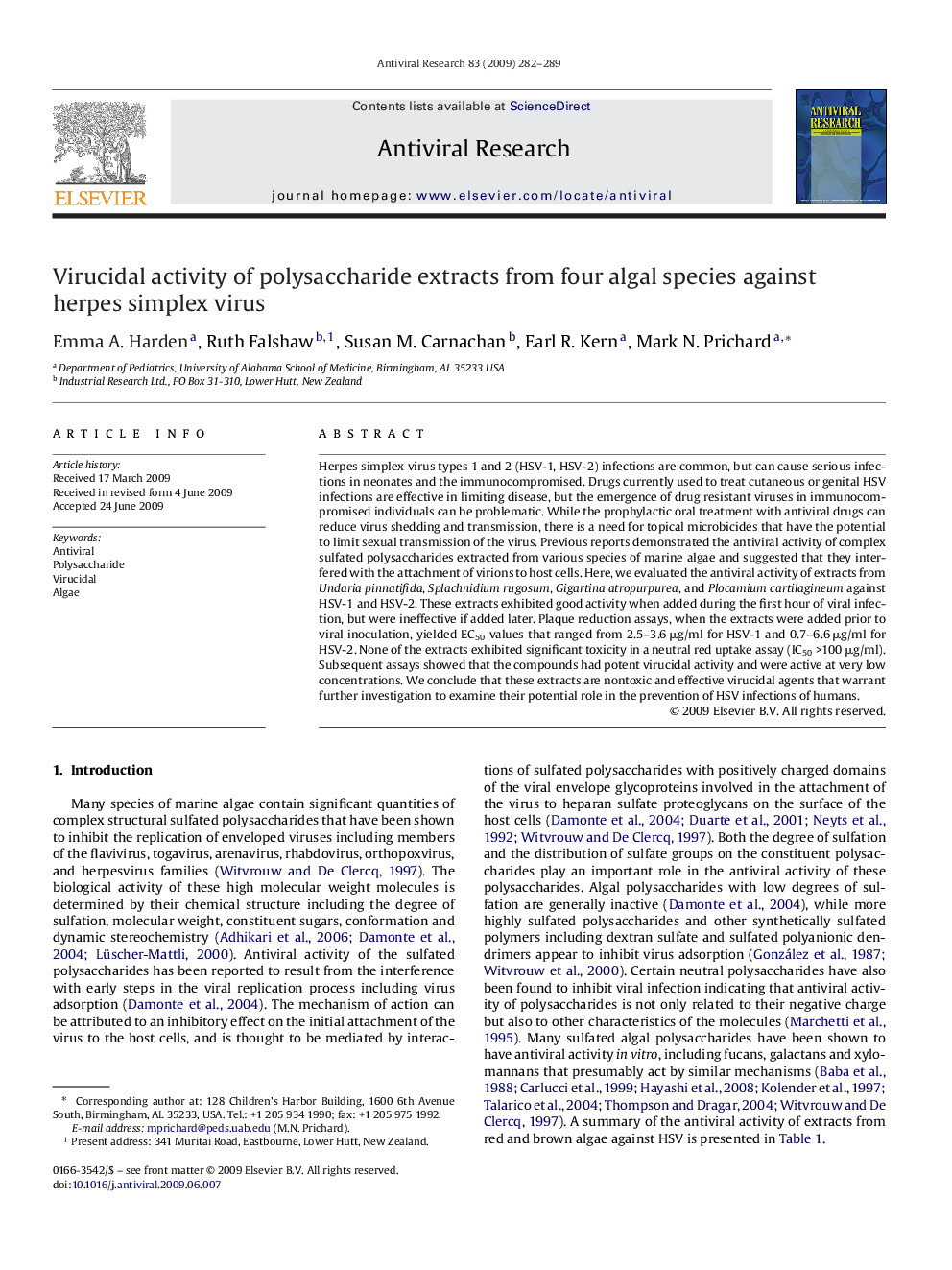| Article ID | Journal | Published Year | Pages | File Type |
|---|---|---|---|---|
| 2510708 | Antiviral Research | 2009 | 8 Pages |
Herpes simplex virus types 1 and 2 (HSV-1, HSV-2) infections are common, but can cause serious infections in neonates and the immunocompromised. Drugs currently used to treat cutaneous or genital HSV infections are effective in limiting disease, but the emergence of drug resistant viruses in immunocompromised individuals can be problematic. While the prophylactic oral treatment with antiviral drugs can reduce virus shedding and transmission, there is a need for topical microbicides that have the potential to limit sexual transmission of the virus. Previous reports demonstrated the antiviral activity of complex sulfated polysaccharides extracted from various species of marine algae and suggested that they interfered with the attachment of virions to host cells. Here, we evaluated the antiviral activity of extracts from Undaria pinnatifida, Splachnidium rugosum, Gigartina atropurpurea, and Plocamium cartilagineum against HSV-1 and HSV-2. These extracts exhibited good activity when added during the first hour of viral infection, but were ineffective if added later. Plaque reduction assays, when the extracts were added prior to viral inoculation, yielded EC50 values that ranged from 2.5–3.6 μg/ml for HSV-1 and 0.7–6.6 μg/ml for HSV-2. None of the extracts exhibited significant toxicity in a neutral red uptake assay (IC50 >100 μg/ml). Subsequent assays showed that the compounds had potent virucidal activity and were active at very low concentrations. We conclude that these extracts are nontoxic and effective virucidal agents that warrant further investigation to examine their potential role in the prevention of HSV infections of humans.
